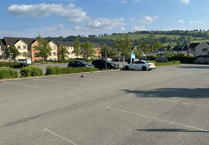The Welsh Ambulance Service is urging the public to protect its resources over the Bank Holiday weekend.
The Trust is reminding the public about the alternatives to 999 to protect its precious resources for those who need them most.
• Collect any repeat prescriptions before the three-day weekend.
• Ensure you have a fully stocked first aid kit to treat minor ailments at home.
• Test your symptoms on the NHS 111 Wales website, or call 111 if you are unsure.
• Visit your local pharmacy, where qualified healthcare professionals can offer free clinical advice and over-the-counter medicines for a range of common ailments.
• Visit a Minor Injury Unit for injuries which are not serious.
Members of the public are also being encouraged to keep an eye on any elderly or vulnerable family, friends or neighbours and to check their medicine cabinets are stocked with useful and in-date medication.
Sonia Thompson, the Trust’s Assistant Director of Operations (Emergency Medical Service), said: “As ever, we’re expecting the Bank Holiday period to be a busy one for us and that’s why we’re asking for everyone’s help to ensure we’re there for those who are the most seriously ill or injured over the Bank Holiday.
“If you call us for something which is not an emergency, you could be taking away valuable time and resources from someone who is in a genuine, life-threatening emergency.
“People should also understand that just because you call an ambulance or are taken to hospital by ambulance, does not mean that you will be treated any quicker once you arrive at the emergency department.
“So, please help us to help you and consider the range of other services available to you.”
The Trust is also reminding road users to take care on the roads.
Dermot O’Leary, Acting Locality Manager for Conwy and Denbighshire and the Trust’s road safety champion, said: “The roads are even busier over the Bank Holiday, and this is where you have a role to play as driver."
Here are Mr O’Leary’s tips to stay safe over the Bank Holiday and every day:
• Always wear a seatbelt.
• Allow plenty of distance between you and the car in front.
• Keep an eye out for traffic speed and flow.
• Mobile phones off and kept somewhere secure.
• No drink or drugs.
• If you have people distracting you in the car, ask them to be quiet.
• In the event of a breakdown, have the necessary equipment to keep you safe at the side of the road, a hi-vis or yellow jacket and move up the bank/away and behind the vehicle to call and wait for assistance.
Mr O’Leary added: “If you’re behind the wheel remember, there should be zero alcohol in your system - drinking and driving don’t mix.
“Alcohol slows down your reactions and impairs your judgement.
“If you do plan on enjoying a family get together, plan ahead and arrange a designated driver or taxi to get you home.
“Don’t make us pick up the pieces, have a safe drive.
“It’s important that our emergency ambulances are protected for those that need us most and 999 is kept for the most serious and life-threatening emergencies only.”




